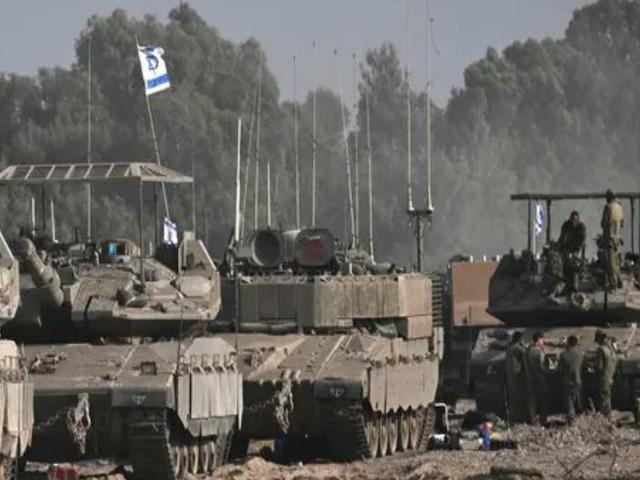As Israel enters the new year, it is recalibrating its military approach in the Gaza Strip, signaling a transition to more targeted operations against Hamas. This strategic shift includes a partial withdrawal of forces from Gaza and the reintegration of some reservists into civilian life, in an effort to bolster the national economy during this extended period of conflict.
According to a high-ranking Israeli official, the overarching goal remains the dismantlement of Hamas's control in Gaza. This pivot in strategy involves preparing certain withdrawn troops for potential engagements on the northern front with Lebanon, amidst ongoing tensions.
Israel begins withdrawing 5 combat brigades from Gaza.
— Tory Fibs (@ToryFibs) January 1, 2024
Israel has lost more soldiers in Gaza invasion in 3 months than the UK lost in Iraq in the first 5 years of their invasion. pic.twitter.com/TROZT20eAc
The Israeli military campaign in Gaza, initiated in response to Hamas's aggressive actions on October 7, was structured in three phases. The initial stage involved heavy shelling to secure ground force pathways and encourage civilian evacuations. This was followed by a ground invasion that began on October 27, leading to significant territorial control by Israeli forces, despite continued resistance from Palestinian militants.
The third phase, now underway, focuses on intensive operations to neutralize terrorist threats. The official emphasized that this would be a prolonged effort, with no immediate prospects for peace initiatives, especially in heavily impacted areas like the Shajaia district.
Israel started the new year with a different kind of fireworks as Palestinian militant group Hamas targeted missiles at the stroke of midnight in response to the intensified Israeli attacks on Gaza #israelhamaswarupdates #gaza #missiles #cnbctv18digital pic.twitter.com/KkbZ9oXWNY
— CNBC-TV18 (@CNBCTV18News) January 1, 2024
Israel's war effort has seen the mobilization of approximately 300,000 reservists, a substantial portion of the workforce. While some were quickly released, a significant number remain active. The recent decision to discharge a portion of these reservists is aimed at revitalizing the Israeli economy.
In parallel, Israel remains vigilant on its northern border. The Lebanese Hezbollah group, in solidarity with Palestinians, has engaged in hostilities with Israel. The Israeli official warned of a potential escalation into a full-scale Lebanon war if Hezbollah does not de-escalate. The situation is further complicated by Iran's support for Hamas and Hezbollah, as well as its involvement in wider regional conflicts.
If Hezbollah forces an escalation in the North, it will be stunned by the strength of Israel's response, and Iran too will pay a price.
— Mark Regev (@MarkRegev) December 31, 2023
Watch me on @FoxNews pic.twitter.com/tlk1xrekpQ
The human cost of the conflict in Gaza has been severe, with thousands of casualties reported. While Israel asserts significant militant fatalities, the numbers indicate that Hamas still maintains a substantial force. Additionally, efforts continue to secure the release of hostages taken by Hamas, with potential progress through Qatari and Egyptian mediation.
Lieutenant-General Herzi Halevi, addressing Israeli troops, acknowledged the long duration of the conflict and the challenges of completely eliminating threats to Israel. However, he expressed confidence in achieving a more secure and stable environment.
Priceless moment: an IDF soldier from the Druze community in #Israel returns home after 50 days in #Gaza.
— Erez Neumark 🇮🇱🇧🇪 (@ErezNeumark) January 1, 2024
The difference between #Israelis and #Hamas Jihadists in a nutshell:
We embrace life.
They embrace martyrdom.#October7Massacre #Hamas_is_ISIS #HamasRapists #FAFO pic.twitter.com/0TYm5EQ4EK
This recalibration of Israel's military strategy in Gaza, combined with the readiness to confront threats from Lebanon, underscores the nation's commitment to its security objectives amidst a complex and evolving regional landscape.


